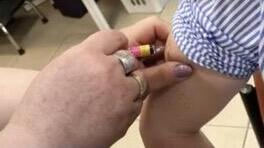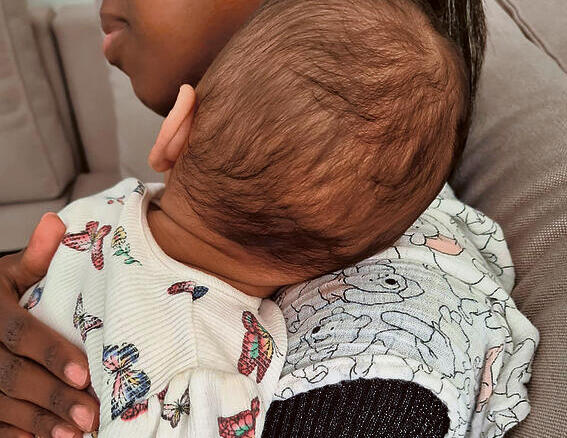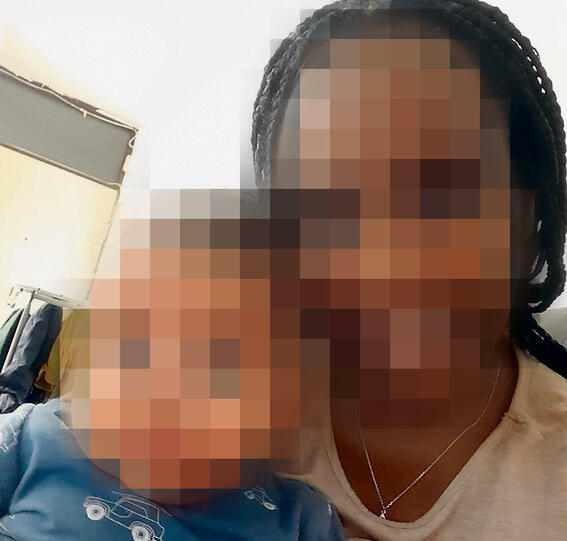Ethiopian immigrants face racism in many aspects of life, but it turns out that racism begins as soon as they enter the world. This is exemplified by the directive that came into effect with the first wave of Ethiopian Aliyah, stating that every baby born to a parent who is a citizen of the country must be vaccinated against tuberculosis immediately after birth. The reason: Ethiopia is considered a country with high rates of the disease.
Other Stories:
The problem with this is that only babies born to parents of Ethiopian origin are required to be vaccinated against tuberculosis, while babies born to parents from other countries where the disease is also common are not required to receive the vaccine. An investigation has claimed that this directive is implemented based solely on skin color.
The Ministry of Health protocol states that every baby born to a parent from Ethiopia must receive the BCG vaccine against tuberculosis. However, despite the protocol stating that this applies to all babies born to parents who came from countries where the disease is common, a series of testimonies from Ethiopian women, including those born in Israel, indicate that in practice the directive is implemented based solely on skin color.
This is an old protocol and, despite repeated attempts by Ethiopian immigrants and advice from professionals to change the protocol, Ethiopian-origin mothers often struggle with the pressure to vaccinate their children with a vaccine that the vast majority of Israeli children are not required to receive. The health system continues to implement a protocol which is specifically aimed at Ethiopian immigrants.
According to the protocol, the "BCG vaccine is given to newborns and children from families of new immigrants and residents who are not Israeli citizens and who come from countries where tuberculosis is common." However, the only countries that receive special attention under the protocol are Ethiopia and India, from which a small number of immigrants have come to Israel.
For example, the protocol does not specifically refer to several countries of the former Soviet Union where tuberculosis also is prevalent. It also was not updated against the backdrop of the large immigration wave that took place last year from Ukraine due to the ongoing war with Russia.
A series of mothers who were born in Russia, Moldova, Ukraine, and also South Africa, where tuberculosis is common, confirmed that they were not offered the vaccine after giving birth in Israeli hospitals. "They did not talk to me about this vaccine and did not offer it to me after the birth," said a new mother who was born in Russia.
3 View gallery


Babies born to parents of Ethiopian origin are required to be vaccinated against tuberculosis
(Ynet)
The mothers testify: 'It is inappropriate and insulting'
Ethiopian women voiced their opinions about what is happening today in Israeli delivery rooms.
"I gave birth a year ago," says one, a resident of northern Israel. "Before I went into the cesarean-section surgery, they asked me if I agreed to vaccinate the baby against tuberculosis, and I refused. When I was recovering after birth, my husband was called and told that they were demanding to vaccinate the baby again. It didn't end there, and they explicitly stated that according to the protocol it is meant for Ethiopian immigrants. At some point, they were also instilling fear, and I remember something being said about defects in the heart or brain."
Another Ethiopian mother, a resident of southern Israel, spoke up about what happened after the birth of her son. "The nurse asked me if I was born in Ethiopia or in Israel," she recalled.
"I said I was born in Israel, but my husband was born in Ethiopia and came to Israel when he was one year old. 'As long as one of the parents was born in Ethiopia, the baby must be vaccinated,' that's what I was told. My husband didn't grow up in Ethiopia at all, but she tried to push and said that if I wasn't interested, then I would have to sign a refusal form. They made me feel like I was making a bad decision and that I was to blame," the mother said.
According to accumulated evidence gathered by the Ministry of Justice, sometimes vaccination is carried out without the knowledge of the parents.
"If I hadn't caught it and asked, they would have automatically given her the vaccine," another mother said. "I told them explicitly not to give the vaccine against tuberculosis. They told me that all children whose parents are of Ethiopian descent receive the vaccine. I stood my ground and insisted that everything be done in front of me."
"It's inappropriate and insulting," she said. "The fact that even as a person and a parent, you don't have the right to choose. I should make the decisions, and certainly the decision about my baby. I was smart enough to do my research, but what about a mother who is not aware? There is no transparency and there is not the most fundamental and dignified standard of human rights on one's body and one's children."



